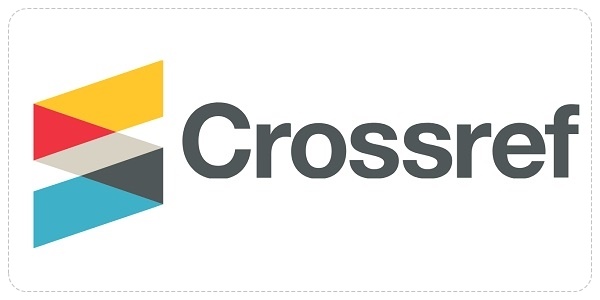The Effect of Game-Based Learning Media with Problem-Based Learning Model on Self-Regulated Learning and Critical Thinking Skills
Abstract
Keywords
Full Text:
PDFReferences
Adipat, S., Laksana, K., Busayanon, K., Ausawasowan, A., & Adipat, B. (2021). Engaging students in the learning process with game-based learning: The fundamental concepts. International Journal of Technology in Education, 4(3), 542–552. https://doi.org/10.46328/ijte.169
Agustiani, N., Lukman, H. S., & Setiani, A. (2024). Critical thinking ability of junior high school students in game-based learning using gemas game. AKSIOMA, 13(2), 485–496. https://doi.org/https://doi.org/10.24127/ajpm.v13i2.8623
Alsaleh, N. J. (2020). Teaching critical thinking skills: Literature review. TOJET, 19(1), 21–39. https://files.eric.ed.gov/fulltext/EJ1239945.pdf
Amin, S., Utaya, S., Bachri, S., Sumarmi, & Susilo, S. (2020). Effect of problem-based learning on critical thinking skills and environmental attitude. Journal for the Education of Gifted Young Scientists, 8(2), 743–755. https://doi.org/10.17478/jegys.650344
Bakhsh, K., Hafeez, M., Shahzad, S., Naureen, B., & Farid, M. F. (2022). Effectiveness of digital game based learning strategy in higher educational perspectives. Journal of Education and E-Learning Research, 9(4), 258–268. https://doi.org/10.20448/jeelr.v9i4.4247
Belousova, N. A., Korchemkina, Y. V., Matuszak, A. F., Fortygina, S. N., Shulgina, T. A., Kovtun, R. F., & Permyakova, N. E. (2020). Digital environment components for the formation of students’ information and analytical skills. Journal of Advanced Pharmacy Education and Research, 10(4), 118–125.
Blythe, H., & Sweet, C. (2008). The writing community: A New model for the creative writing classroom. Pedagogy, 8(2), 305–325. https://doi.org/10.1215/15314200-2007-042
Capuno, J. G. C. (2023). Quizziz : A game-based formative assessment tool for enhancing students self-regulated learning. International Journal of Social Learning, 3(3), 329–340. https://doi.org/https://doi.org/10.47134/ijsl.v3i3.206
Chang, W. L., & Yeh, Y. chu. (2021). A blended design of game-based learning for motivation, knowledge sharing and critical thinking enhancement. Technology, Pedagogy and Education, 30(2), 271–285. https://doi.org/10.1080/1475939X.2021.1885482
Chen, H. L., & Wu, C. T. (2021). A Digital role-playing game for learning: Effects on critical thinking and motivation. Interactive Learning Environments, 0(0), 1–13. https://doi.org/10.1080/10494820.2021.1916765
Cicchino, M. I. (2015). Using game-based learning to foster critical thinking in student discourse. Interdisciplinary Journal of Problem-Based Learning, 9(2). https://doi.org/10.7771/1541-5015.1481
Dabbagh, N. (2019). Effects of PBL on critical thinking skills. In The Wiley Handbook of Problem‐Based Learning (pp. 135–156). https://doi.org/10.1002/9781119173243.ch6
Ellis, P. D. (2010). The Essential guide to effect sizes. In The Essential Guide to Effect Sizes. https://doi.org/10.1017/cbo9780511761676
Fadilla, N., Nurlaela, L., Rijanto, T., Ariyanto, S. R., Rahmah, L., & Huda, S. (2021). Effect of problem-based learning on critical thinking skills. Journal of Physics: Conference Series, 1810(1). https://doi.org/10.1088/1742-6596/1810/1/012060
Febriyanti, F., & Imami, A. I. (2021). Analisis self-regulated learning dalam pembelajaran matematika pada siswa SMP. Jurnal Ilmiah Soulmath : Jurnal Edukasi Pendidikan Matematika, 9(1), 1–10. https://doi.org/10.25139/smj.v9i1.3300
Hartt, M., Hosseini, H., & Mostafapour, M. (2020). Game on: Exploring the effectiveness of game-based learning. Planning Practice and Research, 35(5), 589–604. https://doi.org/10.1080/02697459.2020.1778859
Hidayati, A. R., Fadly, W., & Ekapti, R. F. (2021). Analisis keterampilan berpikir kritis siswa pada pembelajaran IPA materi Bioteknologi. Jurnal Tadris IPA Indonesia, 1(1), 34–48. https://doi.org/10.21154/jtii.v1i1.68
Hosseini, H., Hartt, M., & Mostafapour, M. (2019). Learning IS child’s play: Game-based learning in computer science education. ACM Transactions on Computing Education, 19(3), 1–18. https://doi.org/10.1145/3282844
Hwang, G. J., & Chang, C. Y. (2020). Facilitating decision-making performances in nursing treatments: a contextual digital game-based flipped learning approach. Interactive Learning Environments. https://doi.org/10.1080/10494820.2020.1765391
Indriani, M. N., Isnarto, I., & Mariani, S. (2019). The implementation of PBL (Problem Based Learning) Model assisted by monopoly game media in improving critical thinking ability and self confidence. Journal of Primary Education, 8(2), 200–208. https://doi.org/10.15294/jpe.v8i2.25991
Johan, R. C., Rullyana, G., & Ardiansah, A. (2022). Hyper content e-module in information behavior course with the assistant of screencast. Journal of Education and Learning (EduLearn), 16(2), 210-218. https://doi.org/10.11591/edulearn.v16i2.20339
Jumaisyaroh, T., Napitupulu, E. E., & Hasratuddin, H. (2015). Peningkatan kemampuan berpikir kritis matematis dan kemandirian belajar siswa smp melalui pembelajaran berbasis masalah. Kreano, Jurnal Matematika Kreatif-Inovatif, 5(2), 157. https://doi.org/http://dx.doi.org/10.15294/kreano.v5i2.3325
Katual, D., Goede, R., & Drevin, L. (2023). Game-Based learning to improve critical thinking and knowledge sharing: Literature review. 67th Annual Proceedings of the International Society for the Systems Sciences, ISSS 2023.
Lampropoulos, G. (2023). Educational benefits of digital game-based learning : K-12 Teachers’ Perspectives and attitudes related work. Advances in Mobile Learning Educational Research, 3(2), 805–817. https://doi.org/10.25082/AMLER.2023.02.008
Liu, M., Rosenblum, J. A., Horton, L., & Kang, J. (2014). Designing science learning with game-based approaches. Computers in the Schools, 31(1–2), 84–102. https://doi.org/10.1080/07380569.2014.879776
Liu, Y., & Pásztor, A. (2022). Effects of problem-based learning instructional intervention on critical thinking in higher education: A meta-analysis. Thinking Skills and Creativity, 45(June). https://doi.org/10.1016/j.tsc.2022.101069
Liu, Z.-Y., Shaikh, Z. A., & Gazizova, F. (2020). Using the concept of game-based learning in education. International Journal of Emerging Technologies in Learning, 15(14), 53–64. https://doi.org/10.3991/ijet.v15i14.14675
Mao, W., Cui, Y., Chiu, M. M., & Lei, H. (2022). Effects of game-based learning on students’ critical thinking: A Meta-Analysis. Journal of Educational Computing Research, 59(8), 1682–1708. https://doi.org/10.1177/07356331211007098
Mayer, R. E. (2018). Computer games in education. Annual Review of Psychology, 70, 531–549. https://doi.org/10.1146/annurev-psych-010418-102744
Molin, G. (2017). The Role of the teacher in Game-Based Learning: A review and outlook. In Serious Games and Edutainment Applications: Volume II: Vol. II (pp. 1–702). https://doi.org/10.1007/978-3-319-51645-5_28
Nurhidayanti, A., Nofianti, E., Kuswanto, H., Wilujeng, I., & Suyanta, S. (2022). Analisis Kemandirian belajar peserta didik SMP melalui implementasi LKPD discovery learning berbantuan augmented reality. Jurnal Pendidikan Sains Indonesia, 10(2), 312–328. https://doi.org/10.24815/jpsi.v10i2.23719
Pramana, W. D., & Dewi, N. R. (2014). Pengembangan e-book IPA terpadu tema suhu dan pengukuran untuk menumbuhkan kemandirian belajar siswa. Science Education Journal, 3(3)(3), 602–608. https://doi.org/10.15294/usej.v3i3.4267
Qian, M., & Clark, K. R. (2016). Game-based Learning and 21st century skills: A review of recent research. Computers in Human Behavior, 63, 50–58. https://doi.org/10.1016/j.chb.2016.05.023
Rasyid, A., Iswari, R. I., Marwoto, P., & Rinto, R. (2020). The effectiveness of mobile learning role play game (rpg) maker mv in improving students’ critical thinking ability. Journal of Physics: Conference Series, 1567(4), 0–6. https://doi.org/10.1088/1742-6596/1567/4/042088
Sabourin, J., Shores, L. R., Mott, B. W., & Lester, J. C. (2012). Predicting Student self-regulation strategies in game-based learning environments. Lecture Notes in Computer Science (Including Subseries Lecture Notes in Artificial Intelligence and Lecture Notes in Bioinformatics), 7315 LNCS, 141–150. https://doi.org/10.1007/978-3-642-30950-2_19
Safitri, R. R., & Jumadi, J. (2024). Game-based learning media with problem-based learning model in science : Effort to enhance critical thinking skills. 2024 6th International Workshop on Artificial Intelligence and Education (WAIE), Tokyo, Japan, 214–219. https://doi.org/10.1109/WAIE63876.2024.00046
Safitri, R. R., Putri, A. F., Jumadi, J., Nurohman, S., Natadiwijaya, I. F., & Rahmawati, L. (2024). Science e-worksheet based on local wisdom with pbl model : Efforts to improve critical thinking skills. JPI (Jurnal Pendidikan Indonesia), 13(4), 874–884. https://doi.org/10.23887/jpiundiksha.v13i4.79785
Saputra, M. D., Joyoatmojo, S., Wardani, D. K., & Sangka, K. B. (2019). Developing critical-thinking skills through the collaboration of Jigsaw model with problem-based learning model. International Journal of Instruction, 12(1), 1077–1094. https://doi.org/10.29333/iji.2019.12169a
Saputri, A. C., Sajidan, S., & Rinanto, Y. (2018). Critical thinking skills profile of senior high school students in Biology learning. Journal of Physics: Conference Series, 1006(1). https://doi.org/10.1088/1742-6596/1006/1/012002
Sari, E. E., Usman, & Hakim, A. (2020). Effectiveness of using google forms in the problem based learning model to increase the critical thinking ability of high school students. (Esic 2019), 4–7. https://doi.org/10.2991/assehr.k.200417.002
Sartika, W., Rahman, S. R., & Irfan, M. (2023). Empowering students’ critical thinking skills using problem-based learning. Inornatus: Biology Education Journal, 3(2), 67–74. https://doi.org/10.30862/inornatus.v3i2.427
Setyawan, W. C., Sulthoni, S., & Ulfa, S. (2019). Pengembangan multimedia game edukasi IPA. Jurnal Kajian Teknologi Pendidikan, 2(1), 30–36. http://dx.doi.org/10.17977/um038v2i12019p030
Shanthi, R. (2019). Multivariate data analysis: Using SPSS and AMOS. MJP Publisher.
Sungur, S., & Tekkaya, C. (2006). Effects of problem-based learning and traditional instruction on self-regulated learning. Journal of Educational Research, 99(5), 307–320. https://doi.org/10.3200/JOER.99.5.307-320
Susilana, R., Dewi, L., Rullyana, G., Hadiapurwa, A., & Khaerunnisa, N. (2022). Can microlearning strategy assist students’ online learning. Jurnal Cakrawala Pendidikan, 41(2), 437-451. https://doi.org/10.21831/cp.v41i2.43387
Sutarno, E., & Mukhidin. (2013). Pengembangan model pembelajaran berbasis multimedia interaktif pengukuran untuk meningkatkan hasil dan kemandirian belajar siswa SMP di Kota Bandung. Jurnal Pendidikan Teknologi Dan Kejuruan, 21(3), 203–218. https://doi.org/https://doi.org/10.21831/jptk.v21i3.3258
Taub, M., Mudrick, N. V., Azevedo, R., Millar, G. C., Rowe, J., & Lester, J. (2017). Using multi-channel data with multi-level modeling to assess in-game performance during gameplay with CRYSTAL ISLAND. Computers in Human Behavior, 76, 641–655. https://doi.org/10.1016/j.chb.2017.01.038
Wahyu, E. S., Sahyar, S., & Ginting, E. M. (2017). The Effect of Problem Based Learning (PBL) model toward student’s creative thinking and problem solving ability in Senior High School. American Journal of Educational Research, 5(6), 633–638. https://doi.org/10.12691/education-5-6-7
Wu, W. H., Hsiao, H. C., Wu, P. L., Lin, C. H., & Huang, S. H. (2012). Investigating the learning-theory foundations of game-based learning: A meta-analysis. Journal of Computer Assisted Learning, 28(3), 265–279. https://doi.org/10.1111/j.1365-2729.2011.00437.x
DOI: https://doi.org/10.17509/pdgia.v23i2.83251
Refbacks
- There are currently no refbacks.
INDEXED BY

This work is licensed under a Creative Commons Attribution-ShareAlike 4.0 International License
















